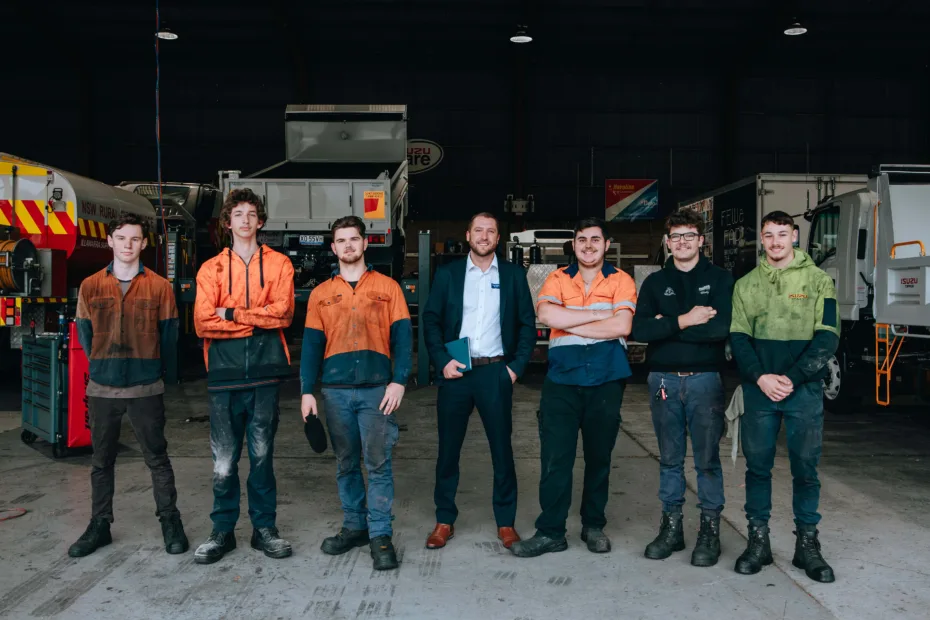In Australia, apprenticeships remain a vital pathway for building a skilled workforce. However, a critical issue often overlooked is the lack of clear career progression for apprentices once they complete their training. Many apprentices enter the workforce full of ambition, only to find themselves uncertain about their long-term prospects. Without well-defined career pathways, we risk losing skilled tradespeople who could have contributed to their industry for decades.
Apprenticeships are designed to equip individuals with the practical skills and qualifications necessary for their trade. But what happens after they earn their certificate? For many, the options aren’t always clear. While some go on to establish successful careers, others leave their industry due to a lack of guidance, career development opportunities, or prospects for advancement.
Without a structured career pathway, many tradespeople face stagnation, with few options beyond remaining in the same role for years. This uncertainty can lead to dissatisfaction, pushing skilled workers to seek alternative careers where progression is more transparent.
Industries struggling with skill shortages must go beyond simply recruiting new apprentices. The key to long-term success lies in ensuring that tradespeople have a defined future beyond their apprenticeship. Without clear career pathways, retaining skilled workers becomes increasingly difficult, leading to a cycle of talent loss and recruitment challenges.
Providing a structured career trajectory also plays a vital role in increasing job satisfaction. When workers see opportunities to advance into specialist roles, leadership positions, or even business ownership, they remain more engaged and motivated. This sense of progression not only benefits the individual but also strengthens the industry by fostering experienced professionals who continue to contribute at higher levels.
Encouraging lifelong learning is another crucial aspect of career pathways. Workers who understand the value of upskilling, whether in emerging technologies or industry specialisations, are far more likely to invest in their own professional development. This continuous learning culture ensures that tradespeople remain competitive and adaptable in an evolving job market.
Future-proofing the workforce requires industries to embrace pathways that integrate ongoing education and skill development. As technological advancements reshape industries and market demands shift, trades must evolve to stay relevant. A clear, structured approach to career progression ensures that workers are equipped to meet these changes, benefiting both individuals and the industry as a whole.
For apprentices, the journey doesn’t end upon completing their training, it’s just the beginning of a long and rewarding career. A variety of structured pathways exist, providing opportunities for long-term success and professional growth. Many apprentices transition into full-time roles as qualified tradespeople, applying the skills they have developed during their training. However, career progression doesn’t stop there.
With further training, tradespeople can specialise in areas such as emerging technologies, diagnostics, or niche industry applications, allowing them to develop expertise in high-demand fields. Others may choose to take on leadership roles, moving into supervisory or managerial positions where they oversee teams and operations. For those with entrepreneurial ambitions, business ownership presents a viable path, enabling skilled professionals to establish their own companies and offer specialised services.
Beyond the hands-on aspects of their trade, some experienced workers transition into training and education, taking on teaching roles at TAFEs or Registered Training Organisations (RTOs) to pass on their knowledge to the next generation of apprentices. Additionally, opportunities exist within corporations, government agencies, and industry associations in advisory, compliance, and technical support roles, where tradespeople contribute to shaping industry standards and best practices.
To ensure apprentices have clear and structured career pathways, industry stakeholders must take proactive steps. Developing career progression frameworks is essential, requiring collaboration between industry bodies, employers, and training organisations to provide clear guidance beyond initial training. Specialisations should also be promoted, highlighting opportunities in areas such as renewable energy, digital fabrication, and emerging construction technologies to demonstrate long-term career viability.
Supporting apprentices in their leadership and business aspirations is another key priority. More initiatives are needed to help those who want to advance into supervisory, managerial, or entrepreneurial roles within their trade. Strengthening mentorship programs can also play a crucial role, connecting new apprentices with experienced professionals who can offer guidance and inspiration.
Finally, vocational training must continually evolve to align with industry needs. By ensuring that apprentices graduate with relevant and future-proofed skills, the industry can create a workforce that is not only job-ready but also equipped for long-term career growth. With these efforts in place, apprentices will have the support they need to navigate their careers with confidence and purpose.
Employers, policymakers, and industry leaders must work together to ensure that apprenticeships are not just an entry point into the workforce but a gateway to long-term career success. If we fail to address this gap, we risk losing talented tradespeople to industries where career growth is better structured.
The future of Australia’s skilled workforce depends not only on getting people into apprenticeships but also on showing them where their skills can take them. Now is the time to create clear, achievable career pathways that keep our tradespeople engaged, skilled, and invested in their industries for the long haul.
What do you think? Have you seen effective career progression pathways in the trades, or do you think more needs to be done? Share your thoughts in the comments!

Stay up to date with our news: https://www.apprus.com.au/news-stories/



































